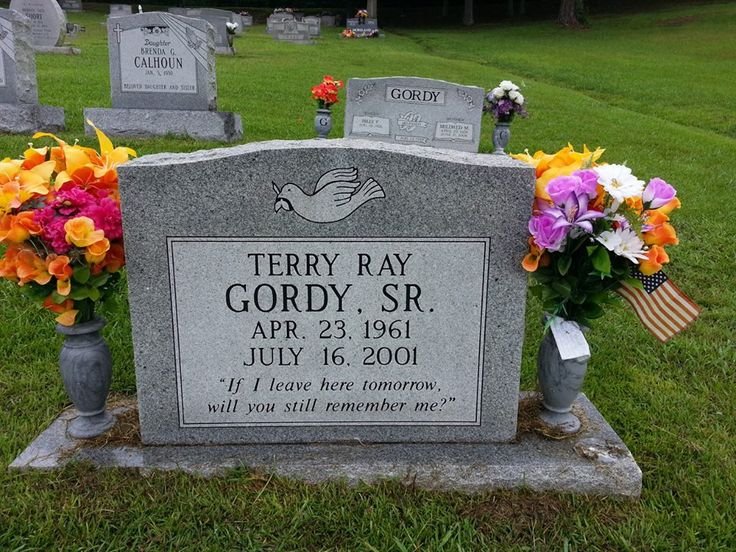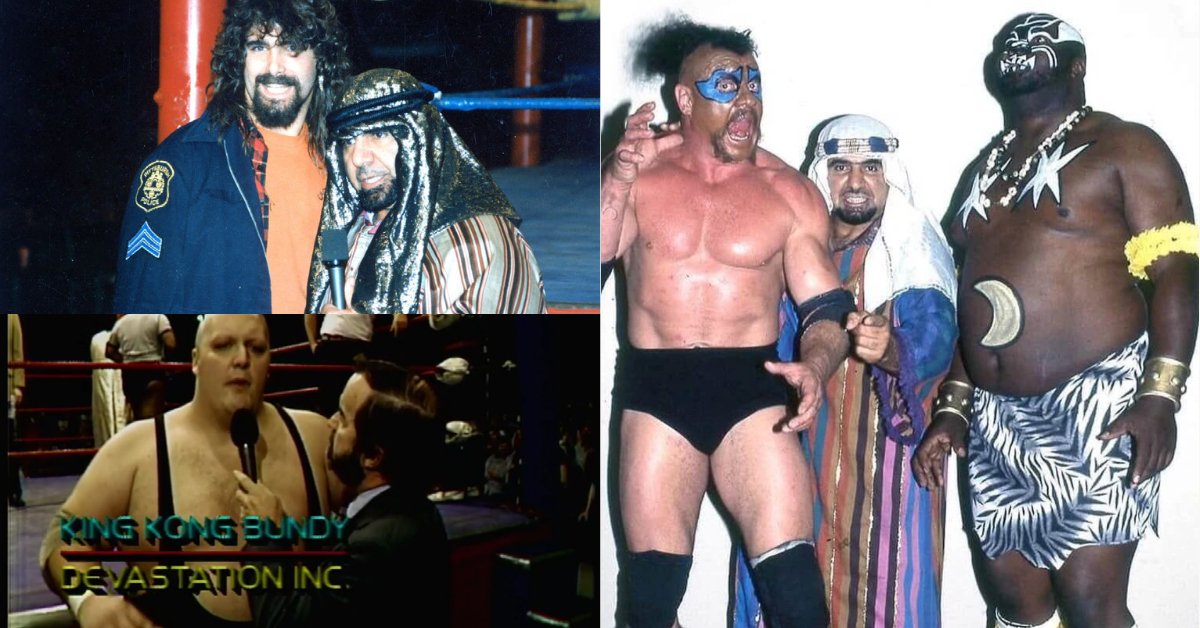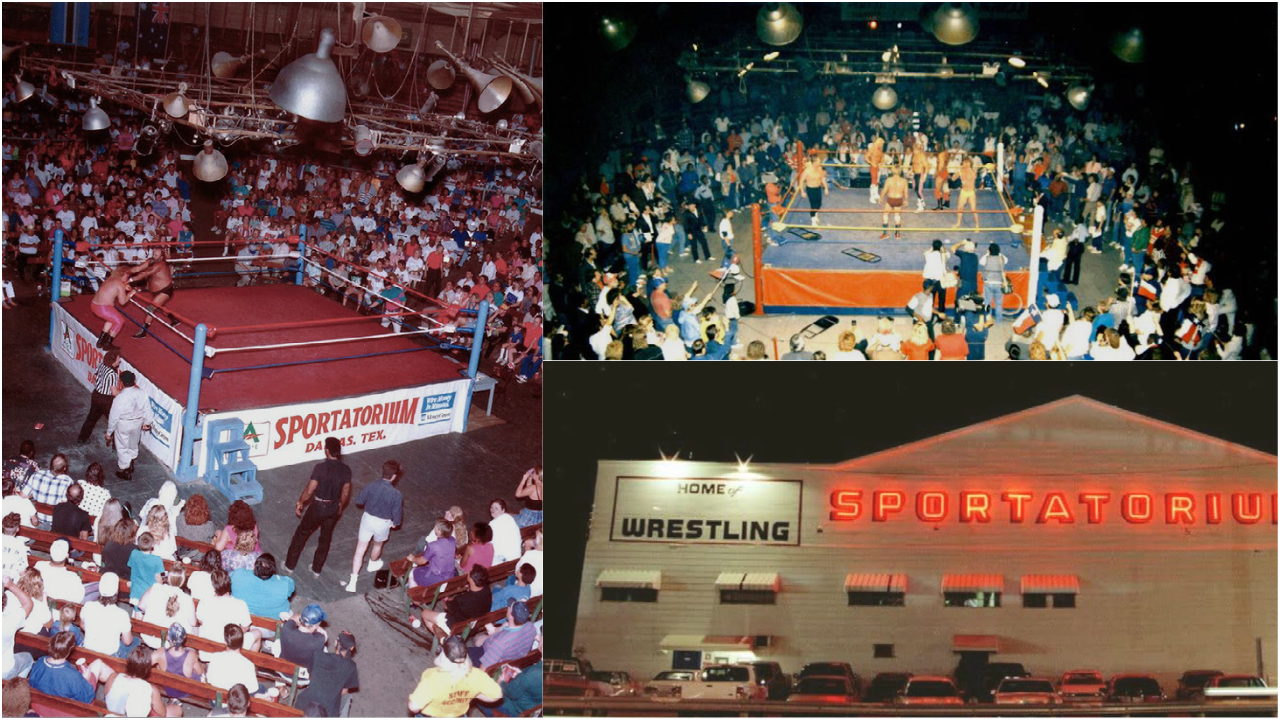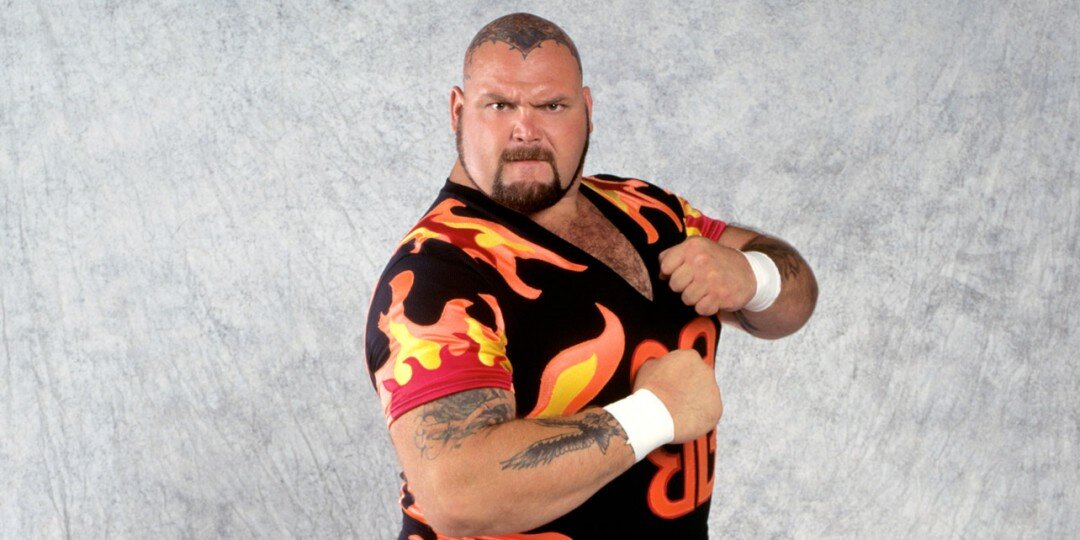Freebird Freefall: The Tragic Tale of Terry Gordy
Prodigy [ prod-i-jee ] - noun, plural prod·i·gies. - a person, especially a child or young person, having extraordinary talent or ability.
The word prodigy is thrown around a lot in professional wrestling but never was it more true than in the case of Terry ‘Bam Bam’ Gordy. Born in 1961, due to his sheer size and immense natural talent, Gordy began wrestling at the extremely young age of 14 in 1975. Quickly becoming a standout star, Gordy’s star would rise to an unprecedented level when he became a founding member of The Fabulous Freebirds in 1979 alongside Buddy Roberts and Michael ‘P.S.’ Hayes. Acting as the muscle for the group, the Freebirds were a revelation at the time. They would have short runs through Memphis and Mid-South Wrestling before then heading to World Class Championship Wrestling in Texas. It was here that they would have the greatest run of their career, engaging in a feud with the Von Erichs that has gone down in wrestling history as one of the greatest feuds of all time.
Post WCCW, Gordy would make his way to Japan, becoming one of the most successful gaijin ever, claiming championships left and right and teaming with fellow future WWE Hall of Famer and successful gaijin Stan Hansen. But it would be his next teammate that would help continue to etch his legend, teaming with Dr. Death Steve Williams and going by arguably the greatest wrestling tag team name ever, The Miracle Violence Connection. Beyond this team, Gordy also saw further success in the United States becoming the World Heavyweight Champion of UWF, the new name of Bill Watts’ promotion as he attempted to take the former Mid-South Wrestling to a national promotion. Following UWF’s acquisition by Jim Crockett Promotions which then became World Championship Wrestling, Gordy returned to Japan. A 1992 return to WCW saw The Miracle Violence Connection win the Tag Team Championships and feud with The Steiner Brothers. It seemed like the world of wrestling was Gordy’s to take over, given his natural ability, size and legitimate style, but as is too often the case in wrestling, it would soon all come crashing down.
During a flight to Japan in 1993 for one of his frequent All Japan tours, Gordy would allegedly take roughly 50 pain pills, resulting in an overdose on the flight that left him in a coma. It would be five days before Gordy emerged from this coma, unfortunately with permanent brain damage. Whether or not this damage could have been avoided had this incident not happened on a flight across the world is nothing but speculation, but one thing for certain is that the once-imposing muscle of the Fabulous Freebirds would now be a shell of his former self. Friends in the business would go on to note that the previously happy and jokey Gordy was now more calm, almost in a constant state of confusion.
The formerly ferocious and calculated competitor in the ring was also gone. Big time bookings dried up, but the name value of Terry ‘Bam Bam’ Gordy was enough to keep him going for the next few years, although at a much lesser level than he previously had done. In 1994, Gordy found himself once again teaming with his Freebird brothers Michael Hayes and Jimmy Garvin in Global Wrestling Federation. In what was surely an attempt to revive the 6-man wars they had with the Von Erichs, the Freebirds would be programmed against fellow former WCCW stars Bill Irwin, Black Bart and a young upstart named Moadib, the man who would go on a year later to become Ahmed Johnson in the WWF. Gordy would also make a stop in Jim Cornette’s Smoky Mountain Wrestling towards the end of the company’s existence, feuding with and winning the SMW Heavyweight Title from Brad Armstrong, before dropping it back to him on his way out of the company.
Gordy would then have a brief stop in Paul Heyman’s Extreme Championship Wrestling, where he would compete in some matches that, had he been the Bam Bam of old, would have been dream matches. Gordy would reunite with his old Miracle Violence Connection partner Steve Williams for a match against The Eliminators, as well as tying it up with the likes of Raven and even a battle of the “Bam Bams” against Bam Bam Bigelow. This would seemingly be the stepping stone to his final shot at the big time.
In 1996, Michael Hayes had been working in the World Wrestling Federation as Dok Hendrix on the mic, and between his pushing, as well as the good word from Jim Ross and Bruce Prichard, Vince McMahon decided to take a shot on Gordy, bringing him in for an opportunity. The legend goes that due to everyone knowing this wasn’t the same Terry Gordy who had lit the wrestling world on fire in the 80s, the decision was made to keep him under a hood in an effort to preserve his legacy, with the plan being to unmask him should things go well. Alas, Gordy never appeared in a WWF ring as himself in the 1990s.
Gordy would make his first appearance under the hood as The Executioner at In Your House: Buried Alive, assisting Mankind in his quest to be rid of The Undertaker once and for all. The Executioner would attack The Undertaker from behind, hitting him with a shovel, allowing the dastardly bad guys to throw the Deadman into the grave and cover him with dirt. Gordy was clad in what appeared to be a costume straight from the racks of a generic Halloween costume store.
Gordy would go on to have a series of matches against enhancement talent in November of 1996, most notably against Freddie Joe Floyd, better known as the late Tracey Smothers. He would also have a few squash matches against the likes of Aldo Montoya (the future Justin Credible) and Barry Horowitz. Outside of his upcoming PPV match with The Undertaker, his most noteworthy match was a tag team match in Dubai, teaming with Mankind against the team of Undertaker and Bret Hart.
At December’s In Your House: It’s Time, The Executioner would fail to defeat The Undertaker in an Armageddon Rules match, which was essentially a No Holds Barred match that went all over the arena. Watching the match can be an excruciating feeling for those who knew what Terry Gordy was once capable of, and it was clear that The Executioner character and Gordy’s WWF career were doomed to fail. He would compete at one final television taping for the WWF two days after In Your House, in a match he would lose to Goldust, culminating with Paul Bearer turning on him and bashing him with the urn. Despite this, Gordy would still appear on one final run of house shows to bring in the new year of 1997, teaming with Mankind in a series of losses to the WWF Tag Team Champions, Owen Hart and The British Bulldog.
Over the years, it has been noted that Gordy’s Freebird brother, Michael Hayes held a lot of anger towards Gordy for how things ended up playing out, but it was coming from a place of love, as Michael never stopped believing in Gordy and trying to help him. On the WWE DVD release of ‘The Triumph and Tragedy of World Class Championship Wrestling,’ Hayes notably stated that Gordy was the best to ever do it, and was put on this Earth to wrestle. Jim Ross would also look back on the disastrous run of The Executioner on his Grilling JR podcast.
“Well, I think we underestimated his mental faculties a little bit. You know, I got a lot of feedback from some of the agents and some of the boys that Terry’s not the same, and he wasn’t laughing and joking. And he seemed a little darker. Maybe he sometimes [seems] like he’s confused. It just wasn’t — you know, it was a favor done for Michael Hayes and others. A lot of guys were pulling for Terry Gordy, for God’s sake, including me. So that was kind of that. And I just, it’s one of those deals where I feel, I’m glad that we gave him some paydays. But past that, I don’t know how many favors we did him. He just — but I didn’t know, and that’s another problem. I knew his work at one time was as good as it was. Best wrestling big man, 300 pounder, I ever saw. But man, he just wasn’t that same guy. And it’s sad, it’s heartbreaking. So I’m glad that he got out of there without hurting himself or anybody else.”
Following his ill-fated run in WWF, Gordy would once again return to his second home of Japan, competing in matches for IWA, but on a much less frequent basis than he would have had he been healthy and in full control of his faculties. 1998 would see much of the same before Gordy would make what was surely the right decision at the time to retire from full-time in-ring action. While he would still compete in roughly a match per year for the following two years, his final match would occur in IWA Japan on February 4th, 2001 in a 10-man tag team match. Sadly, just a few months later on July 16th, 2001 Gordy would pass away from a heart attack caused by a blood clot. It would be a sad ending for one of the most tremendous big men the business had ever seen.
“If I leave here tomorrow, will you still remember me?”
The body of Terry Gordy would be laid to rest in Rossville, Georgia at the Tennessee Georgia Memorial Park, with the iconic lyrics from Lynyrd Skynyrd’s “Freebird” etched on his tombstone. Given the way that the Fabulous Freebirds lived and rocked the wrestling world, it seems an appropriate epitaph. It’s been more than 20 years since Terry ‘Bam Bam’ Gordy shuffled off this mortal coil, and here we are, still lovingly, talking and writing about him and his legacy, so it’s safe to say we will always remember the big Freebird.
The gravestone of Terry Gordy. Credit: The Funeral Source




